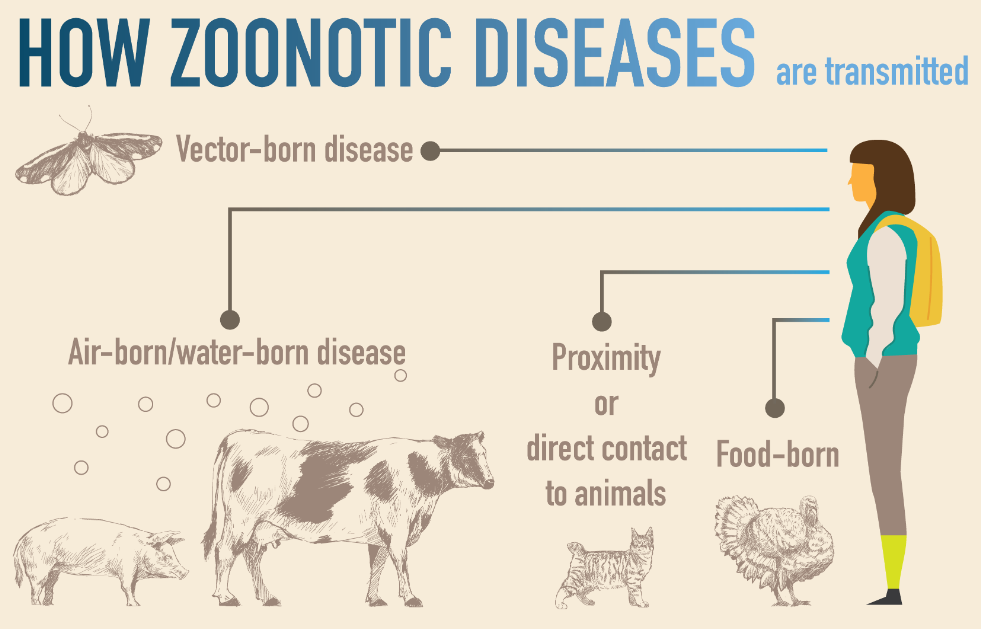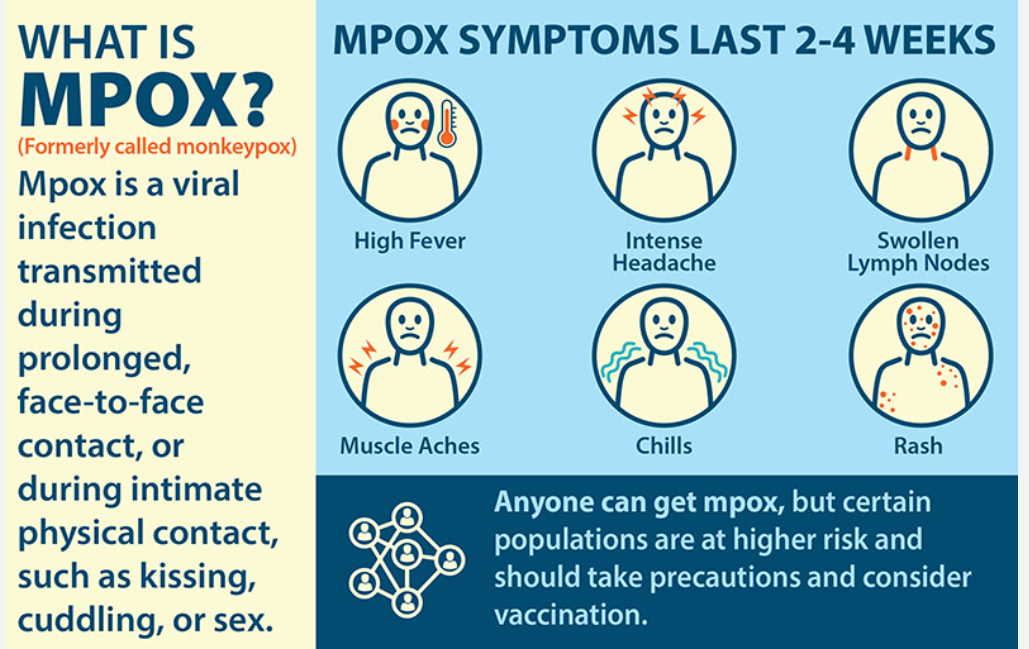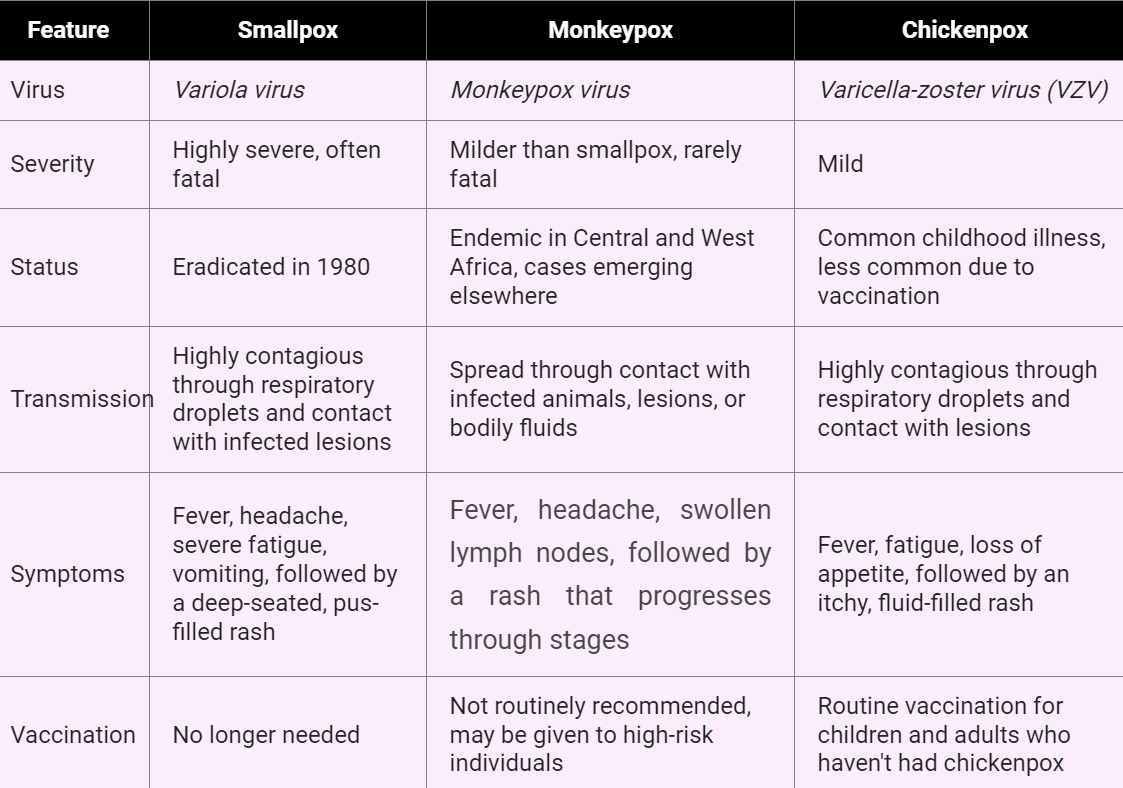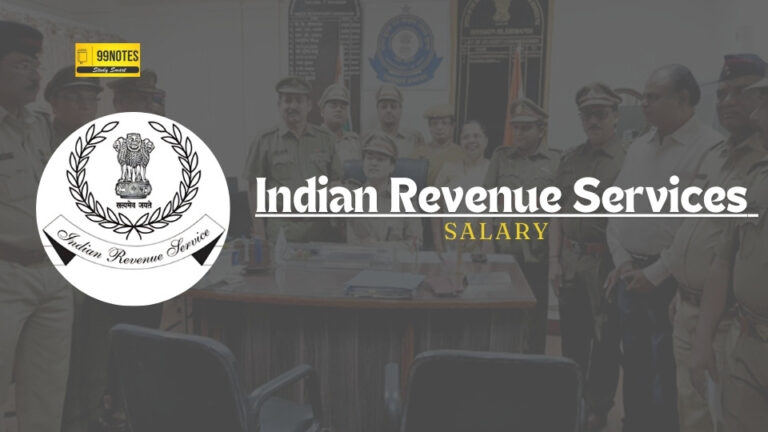WHO Declares Mpox a Global Health Emergency Again Amid Rising Cases in Africa
| Topic: GS2 – Social Justice – Health
GS3 – Science and Technology |
| Context: |
|
Analysis of News:

What are Zoonotic diseases?
- These are infections that are spread between people and animals.
- These infections are caused by germs, such as viruses, bacteria, parasites, and fungi.
- Some can be severe and life-threatening, such as rabies, and others may be milder and get better on their own.
What is Mpox?
- Mpox is a viral infection caused by the mpox virus (MPXV), characterized by symptoms such as fever, headache, muscle aches, and pox-like rashes.
- Although usually self-limiting, it can be fatal in vulnerable populations, particularly children and those with weakened immune systems.
- Historically confined to Africa, the infection has recently spread globally.

Current Concerns
- The main concern arises from the spread of a more virulent strain of the virus, clade Ib, which is now being transmitted primarily through sexual contact—a departure from the traditional zoonotic transmission observed with other mpox clades.
- Over 100 cases of clade Ib have been reported in countries neighboring the DRC, indicating a worrying trend that requires a coordinated international response.
Global and Indian Risks
- The rapid spread of this new clade has led to global concerns, with cases reported outside Africa, including Sweden.
- India, which saw cases during the 2022 outbreak, remains at risk, especially with international travel being a factor in spreading the virus.
- WHO has highlighted the need for urgent action to prevent a repeat of the global outbreak seen in 2022.
Vaccine Availability
- There are two vaccines currently recommended by WHO for mpox.
- WHO’s recent Emergency Use Listing for these vaccines aims to improve access, particularly in lower-income countries.
- Efforts are ongoing to coordinate vaccine distribution and ensure equitable access globally.
- India has also been involved in manufacturing vaccines and diagnostics in response to the previous outbreak.
Difference Between Small Pox, Chicken Pox, Mpox |
 |
| PYQ: Critically examine the role of WHO in providing global health security during the Covid-19 pandemic. (150 words/10m) (UPSC CSE (M) GS-2 2020) |
| Practice Question: Discuss the global implications of the recent mpox (monkeypox) outbreak, especially in the context of its declaration as a Public Health Emergency of International Concern (PHEIC) by the World Health Organization. How should international and national health systems, including India, prepare to address such emerging health threats? (250 words/15 m) |
WHO Declares Mpox a Global Health Emergency Again: Insights for UPSC Aspirants
The World Health Organization (WHO) has once again raised the alarm by declaring Mpox a global health emergency. This critical development holds immense significance for UPSC aspirants preparing for Current Affairs and GS2 papers. Understanding the role of WHO and its global impact is crucial for scoring high in the UPSC Civil Services Examination.
First, let’s break down what WHO stands for and its relevance. The WHO Full Form is the World Health Organization, a specialized agency of the United Nations responsible for international public health. Established in 1948, WHO has been at the forefront of global health crises, making it a pivotal topic for UPSC GS2 Notes under topics like international organizations and public health governance.
In recent years, WHO has been central to addressing health emergencies like COVID-19 and now, Mpox. Understanding WHO’s declarations, protocols, and global response strategies can provide insightful points for your UPSC Current Affairs preparation. Focus on WHO’s structure, decision-making processes, and key health initiatives when preparing for GS2 UPSC questions.
For UPSC Notes, make sure to cover topics such as WHO’s role in global health governance, the significance of international cooperation during pandemics, and how these aspects align with India’s health policies. Additionally, knowing how WHO collaborates with countries like India will help in framing effective answers for both Prelims and Mains.
By staying updated on WHO’s latest actions and integrating these insights into your GS2 UPSC Notes, you’ll not only strengthen your preparation but also align your content with the keywords necessary to rank high in UPSC Current Affairs topics.


